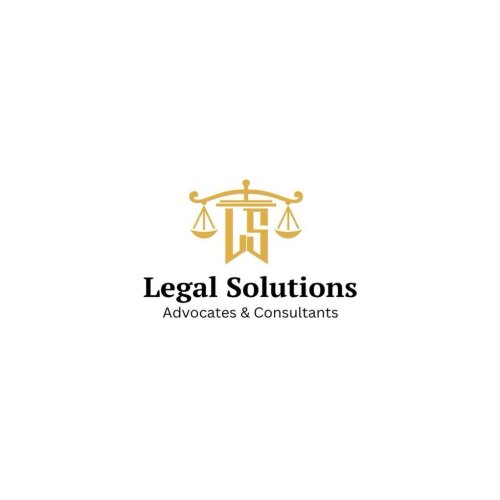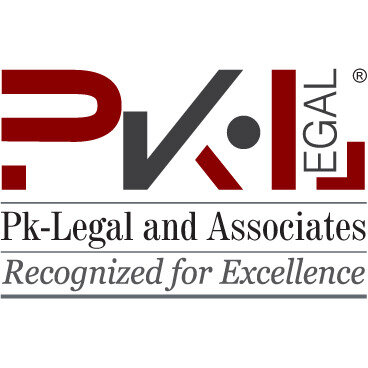Best Sustainable Finance Lawyers in Rawalpindi
Share your needs with us, get contacted by law firms.
Free. Takes 2 min.
List of the best lawyers in Rawalpindi, Pakistan
About Sustainable Finance Law in Rawalpindi, Pakistan
Sustainable Finance refers to financial activities and investments that incorporate environmental, social, and governance (ESG) considerations alongside traditional economic criteria. In Rawalpindi, Pakistan, Sustainable Finance is growing in importance as financial institutions, companies, and investors increasingly aim to support climate-friendly, socially responsible, and well-governed business practices. The legal framework for Sustainable Finance in Rawalpindi is shaped by a combination of Pakistan’s national policies, local laws, and global initiatives, with a focus on sustainable development, responsible investment, and corporate accountability.
Why You May Need a Lawyer
Several situations may require the assistance of a lawyer specializing in Sustainable Finance in Rawalpindi. Individuals and businesses often seek legal advice to navigate the complex and evolving regulations, draft or review sustainable finance agreements, or ensure compliance with reporting obligations. Common scenarios include:
- Structuring green bonds or sustainable investment funds
- Complying with ESG disclosure and reporting requirements
- Advising banks or companies on national sustainable finance standards
- Mitigating legal risks associated with environmental or social impacts
- Dispute resolution relating to sustainable investment commitments
- Managing regulatory investigations or enforcement actions
- Assisting NGOs or community groups advocating for sustainable investment
A qualified lawyer can guide you through the legal intricacies of Sustainable Finance, help protect your interests, and ensure your activities align with both local and international standards.
Local Laws Overview
Pakistan’s legal landscape for Sustainable Finance is influenced by global standards as well as local regulations. Key aspects relevant to Rawalpindi include:
- Securities and Exchange Commission of Pakistan (SECP) Regulations: SECP has issued guidelines on green bonds and sustainable finance instruments. These regulate both the issuance and disclosure requirements.
- State Bank of Pakistan (SBP) Policies: SBP encourages green banking and mandates certain sustainable practices for financial institutions, including environmental risk analysis and reporting.
- Corporate Social Responsibility (CSR) Regulations: Companies registered in Pakistan are increasingly expected to integrate CSR practices that align with sustainable development goals.
- Environmental Protection Laws: Local and national environmental regulations impact financing activities, especially for infrastructure and development projects.
- Sustainable Development Policy Frameworks: Pakistan’s Vision 2025 and the National Sustainable Development Strategy stress the importance of sustainable investment and responsible finance.
Complying with these laws is essential for individuals and businesses involved in financial activities in Rawalpindi. Legal assistance is often needed to interpret and apply these regulations to specific transactions or corporate initiatives.
Frequently Asked Questions
What is Sustainable Finance?
Sustainable Finance involves financial practices and investments that consider environmental, social, and governance (ESG) criteria, aiming to support long-term, responsible growth.
Who regulates Sustainable Finance in Rawalpindi?
The main regulators are the Securities and Exchange Commission of Pakistan (SECP), the State Bank of Pakistan (SBP), and local environmental authorities.
What kinds of financial products are considered sustainable?
Examples include green bonds, social bonds, sustainability-linked loans, and environmental impact investment funds.
Do companies in Rawalpindi need to report on their ESG activities?
While mandatory ESG reporting is still developing in Pakistan, public companies and certain financial institutions are encouraged or required to report their ESG initiatives.
What are green bonds?
Green bonds are specialized financial instruments used to raise funds for projects that have positive environmental or climate benefits.
How can a lawyer assist with sustainable investment?
A lawyer can help with due diligence, regulatory compliance, contract drafting, project risk assessments, and dispute resolution related to Sustainable Finance.
Are there incentives for sustainable investments in Pakistan?
Some government policies provide incentives, such as tax benefits or grant programs, to encourage investments in renewable energy, sustainable agriculture, and other green sectors.
What legal risks are associated with Sustainable Finance?
Risks include non-compliance with regulations, misrepresentation of ESG claims (greenwashing), and failure to meet project-specific environmental standards.
How do environmental laws affect financing in Rawalpindi?
Environmental impact assessments and compliance with local environmental laws are often prerequisites for obtaining finance for projects, especially in construction, manufacturing, or infrastructure.
Can individuals access sustainable finance products in Rawalpindi?
While most sustainable finance products are aimed at businesses or institutions, some banks and investment firms offer green loans or responsible investment opportunities to individuals.
Additional Resources
Here are some organizations and resources that can offer guidance or information about Sustainable Finance in Rawalpindi and Pakistan:
- Securities and Exchange Commission of Pakistan (SECP)
- State Bank of Pakistan (SBP)
- Rawalpindi Chamber of Commerce and Industry (RCCI)
- Pakistan Environmental Protection Agency (Pak-EPA)
- Ministry of Climate Change, Government of Pakistan
- Pakistan Sustainable Finance Initiative (local NGOs and think tanks)
Next Steps
If you believe you need legal advice or representation for matters relating to Sustainable Finance in Rawalpindi, start by clarifying your objectives and gathering all relevant documents. Consider reaching out to a local law firm or an attorney who specializes in corporate, banking, or environmental law, and ask about their experience with Sustainable Finance matters. Schedule a consultation to discuss your specific needs and ensure you understand the legal implications of your activities. Finally, stay updated on changing regulations to ensure ongoing compliance and make the most of emerging opportunities in this field.
Lawzana helps you find the best lawyers and law firms in Rawalpindi through a curated and pre-screened list of qualified legal professionals. Our platform offers rankings and detailed profiles of attorneys and law firms, allowing you to compare based on practice areas, including Sustainable Finance, experience, and client feedback.
Each profile includes a description of the firm's areas of practice, client reviews, team members and partners, year of establishment, spoken languages, office locations, contact information, social media presence, and any published articles or resources. Most firms on our platform speak English and are experienced in both local and international legal matters.
Get a quote from top-rated law firms in Rawalpindi, Pakistan — quickly, securely, and without unnecessary hassle.
Disclaimer:
The information provided on this page is for general informational purposes only and does not constitute legal advice. While we strive to ensure the accuracy and relevance of the content, legal information may change over time, and interpretations of the law can vary. You should always consult with a qualified legal professional for advice specific to your situation.
We disclaim all liability for actions taken or not taken based on the content of this page. If you believe any information is incorrect or outdated, please contact us, and we will review and update it where appropriate.














